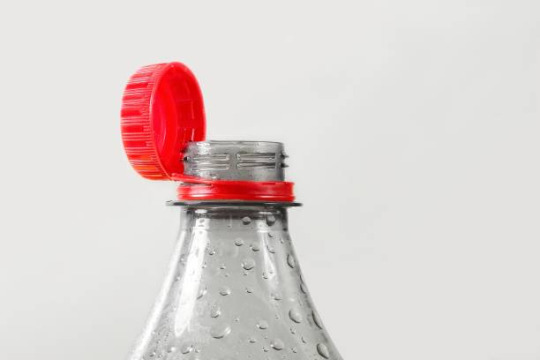#climate controls
Explore tagged Tumblr posts
Text
The 92-page "Kimari's Journal" scrapbook and emotionally raw impact of unread emails from a "frozen" laptop
A card noting the specifics of the collector’s edition
In an effort to increase my physical DVD and Blu-ray collection and not rely on streaming services, I bought a collector’s edition of the 2018 adventure series, A Place Further than the Universe, adapted from a three-volume manga written by Yorimoi. This set came with two Blu-ray discs, original soundtrack, four art cards, a poster, a…

View On WordPress
#A Place Further Than the Universe#Antarctica#archivy#Bloom Into You#classified records#climate controls#email#Girls Band Cry#Hitori Bocchi no Marumaru Seikatsu#K-On!#Kannazuki no Miko#Kashimashi: Girl Meets Girl#laptops#Love Chunibyo & Other Delusions#Love Live! School Idol Project#Love Live! Sunshine!!#Love Live! Superstar!!#No Archivist Present#passports#security#Sound! Euphonium#temperature#The Dangers in My Heart
2 notes
·
View notes
Text
Things Biden and the Democrats did, this week #24
June 21-28 2024
The US Surgeon General declared for the first time ever, firearm violence a public health crisis. The nation's top doctor recommended the banning of assault weapons and large-capacity magazines, the introduce universal background checks for purchasing guns, regulate the industry, pass laws that would restrict their use in public spaces and penalize people who fail to safely store their weapons. President Trump dismissed Surgeon General Dr. Vivek Murthy in 2017 in part for his criticism of guns before his time in government, he was renominated for his post by President Biden in 2021. While the Surgeon General's reconstructions aren't binding a similar report on the risks of smoking in 1964 was the start of a national shift toward regulation of tobacco.
Vice-President Harris announced the first grants to be awarded through a ground breaking program to remove barriers to building more housing. Under President Biden more housing units are under construction than at any time in the last 50 years. Vice President Harris was announcing 85 million dollars in grants giving to communities in 21 states through the Pathways to Removing Obstacles to Housing (PRO) program. The administration plans another 100 million in PRO grants at the end of the summer and has requested 100 million more for next year. The Treasury also announced it'll moved 100 million of left over Covid funds toward housing. All of this is part of plans to build 2 million affordable housing units and invest $258 billion in housing overall.
President Biden pardoned all former US service members convicted under the US Military's ban on gay sex. The pardon is believed to cover 2,000 veterans convicted of "consensual sodomy". Consensual sodomy was banned and a felony offense under the Uniform Code of Justice from 1951 till 2013. The Pardon will wipe clean those felony records and allow veterans to apply to change their discharge status.
The Department of Transportation announced $1.8 Billion in new infrastructure building across all 50 states, 4 territories and Washington DC. The program focuses on smaller, often community-oriented projects that span jurisdictions. This award saw a number of projects focused on climate and energy, like $25 million to help repair damage caused by permafrost melting amid higher temperatures in Alaska, or $23 million to help electrify the Downeast bus fleet in Maine.
The Department of Energy announced $2.7 billion to support domestic sources of nuclear fuel. The Biden administration hopes to build up America's domestic nuclear fuel to allow for greater stability and lower costs. Currently Russia is the world's top exporter of enriched uranium, supplying 24% of US nuclear fuel.
The Department of Interior awarded $127 million to 6 states to help clean up legacy pollution from orphaned oil and gas wells. The funding will help cap 600 wells in Alaska, Arizona, Indiana, New York and Ohio. So far thanks to administration efforts over 7,000 orphaned wells across the country have been capped, reduced approximately 11,530 metric tons of carbon dioxide equivalent emissions
HUD announced $469 million to help remove dangerous lead from older homes. This program will focus on helping homeowners particularly low income ones remove lead paint and replace lead pipes in homes built before 1978. This represents one of the largest investments by the federal government to help private homeowners deal with a health and safety hazard.
Bonus: President Biden's efforts to forgive more student debt through his administration's SAVE plan hit a snag this week when federal courts in Kansas and Missouri blocked elements the Administration also suffered a set back at the Supreme Court as its efforts to regular smog causing pollution was rejected by the conservative majority in a 5-4 ruling that saw Amy Coney Barrett join the 3 liberals against the conservatives. This week's legal setbacks underline the importance of courts and the ability to nominate judges and Justices over the next 4 years.
#Thanks Biden#Joe Biden#politics#us politics#american politics#election 2024#gun control#gun violence#LGBT rights#gay rights#Pride#housing#climate change
4K notes
·
View notes
Text
in light of recent news, one of my favourite tiktokers is here to slap some sense into every american with progressive leanings and a pulse.
#us politics#joe biden#i beg of you as someone who cares about palestine reproductive rights and trans people#and who is from another country where policy is always affected by whatever america is doing#and oh yeah who CARES ABOUT CLIMATE CHANGE#PLEASE VOTE DEMOCRAT#you cant free palestine if youre in jail for being trans or taking birth control#suck it up learn nuance and vote PLEASE
814 notes
·
View notes
Text

Rooturoo in outfits! They typically lounge around in the nude when at home, but their limited wardrobe includes some fun stuff. They got that printed thermos from a polar avian pen-pal and have been using it for years.
#rooturoo#rtts#runaway to the stars#rtts avians#jay eaton#they love their fancy outfit. they have a few and love wearing them to bugferret gatherings to show off#they don't wear their cold gear very often (climate controlled space station)#but when they work with plants/meat in cold storage for long periods they need it#the hat doesn't match. it's a novelty item they got by accident in a homeplanet clothing order#and their casual outfit is just an old dun's uniform for one of the companies in the city#they're particularly large for a bright and wear a lot of dun hand-me-downs#the flip flops were also not part of the original outfit.#myart
208 notes
·
View notes
Text
i do really love those aggressive inspirational -type forcemasc posts bc after having to deal with my mother's constant threats of dragging me to the parlor so they can pluck every last disgusting hair off my body or forcibly shaving me while i'm asleep or even making me get laser. and after all the yelling and guilt tripping when she buys razors and bikini trimmers and body sprays and bras to replace my ratty too-small bralettes and i don't use any of them because i never fucking asked. it is incredibly refreshing to see a perspective that not only prefers my hairy smelly state but wants me to get MORE hairy and smelly
#i <3 being hairy and smelly and sweaty and broad-shouldered and it's a real shame i have to pretend to be a girl#ok actually the sweating can get excessive i start sweating so fast even if im at school in a controlled climate#which could possibly be indicative of a different issue#BUT that is besides the point#pigeon coos
37 notes
·
View notes
Text

#socialism#communism#democrats#new world order#climate change#republicans#wef#biden#trump#nwo#liberals#gun control
68 notes
·
View notes
Text

lieutenant "really normal out of uniform"
#charposting#forgot to post this last... [checks timestamp] september.#i know the colonies are climate controlled but it still has got to be. a little hot in there.#meatmade
42 notes
·
View notes
Text
youtube
There's a 100 hour Livestream going on right now talking about NASA and Weather and Climate Control and what everyone does to help keep us safe!
Please watch!!
31 notes
·
View notes
Text
💵💰💸
#climate change is a hoax#lies for profits and create fear#deep state’s plan to destroy the planet depopulate 7 billowing people and enslave the rest#environnement#environmetalists#we have been lied#manipulated and controlled by few extremely powerful individuals#wake up humanity#speak up#standup#seek truth#speaktruth#these people are evil#fight for justice#crimes against humanity#truth#please share#wwg1wga
538 notes
·
View notes
Text

Malevolent gods
Are better than none
#panic in her song lyrics era???#maybe ¯\_(ツ)_/¯#overall i think crisis actors is a pretty great song but GOD do these specific lyrics live in my head rent-free.#the idea that it's more comforting to believe the world is controlled by known malicious forces than to accept bad things just happen.#and that they're out of anyone's control.#something super relevant to today's political climate and it's expressed really well in this song.#um anyways#kirby series#void termina#hyness#dark matter kirby#francisca kirby#flamberge#zan partizanne#oh also yeah this is a real drawing version of that doodle i posted yesterday. lol#panic's favorites
346 notes
·
View notes
Text
Vitality of public record, demons, museums, fiction, and preservation
Two panels from the series finale
In last year’s series finale of Mage & Demon Queen, a fantasy comedy yuri webtoon by Filipino artist Color-Les, set 25 years in the future (from when the original story takes place) the reporter Toby Verniloy, who works for The Gunhilde Daily, is impressed by a museum which traces history back to the first demon lord. It includes a statue of Malori “Mal” Crowett…

View On WordPress
#analog records#artifacts#Betamax#climate controls#conservation#definitions#Dictionary of Archives Terminology#Erin Tansey#invisible labor#Love Live!#Mage & Demon Queen#museums#Otaku Elf#patrons#restoration#Ryoko&039;s Case File#short blogs#Society of American Archivists#Steven Universe Future#The Fantasy Book Club#The Ghost and Molly McGee#videotapes#vinyl records#Words Bubble Up Like Soda Pop#yuri
4 notes
·
View notes
Text
Things Biden and the Democrats did, this week #13
April 5-12 2024
President Biden announced the cancellation of a student loan debt for a further 277,000 Americans. This brings the number of a Americans who had their debt canceled by the Biden administration through different means since the Supreme Court struck down Biden's first place in 2023 to 4.3 million and a total of $153 billion of debt canceled so far. Most of these borrowers were a part of the President's SAVE Plan, a debt repayment program with 8 million enrollees, over 4 million of whom don't have to make monthly repayments and are still on the path to debt forgiveness.
President Biden announced a plan that would cancel student loan debt for 4 million borrowers and bring debt relief to 30 million Americans The plan takes steps like making automatic debt forgiveness through the public service forgiveness so qualified borrowers who don't know to apply will have their debts forgiven. The plan will wipe out the interest on the debt of 23 million Americans. President Biden touted how the plan will help black and Latino borrowers the most who carry the heavily debt burdens. The plan is expected to go into effect this fall ahead of the election.
President Biden and Vice-President Harris announced the closing of the so-called gun show loophole. For years people selling guns outside of traditional stores, such as at gun shows and in the 21st century over the internet have not been required to preform a background check to see if buyers are legally allowed to own a fire arm. Now all sellers of guns, even over the internet, are required to be licensed and preform a background check. This is the largest single expansion of the background check system since its creation.
The EPA published the first ever regulations on PFAS, known as forever chemicals, in drinking water. The new rules would reduce PFAS exposure for 100 million people according to the EPA. The Biden Administration announced along side the EPA regulations it would make available $1 billion dollars for state and local water treatment to help test for and filter out PFAS in line with the new rule. This marks the first time since 1996 that the EPA has passed a drinking water rule for new contaminants.
The Department of Commerce announced a deal with microchip giant TSMC to bring billions in investment and manufacturing to Arizona. The US makes only about 10% of the world's microchips and none of the most advanced chips. Under the CHIPS and Science Act the Biden Administration hopes to expand America's high-tech manufacturing so that 20% of advanced chips are made in America. TSMC makes about 90% of the world's advanced chips. The deal which sees a $6.6 billion dollar grant from the US government in exchange for $65 billion worth of investment by TSMC in 3 high tech manufacturing facilities in Arizona, the first of which will open next year. This represents the single largest foreign investment in Arizona's history and will bring thousands of new jobs to the state and boost America's microchip manufacturing.
The EPA finalized rules strengthening clean air standards around chemical plants. The new rule will lower the risk of cancer in communities near chemical plants by 96% and eliminate 6,200 tons of toxic air pollution each year. The rules target two dangerous cancer causing chemicals, ethylene oxide and chloroprene, the rule will reduce emissions of these chemicals by 80%.
the Department of the Interior announced it had beaten the Biden Administration goals when it comes to new clean energy projects. The Department has now permitted more than 25 gigawatts of clean energy projects on public lands, surpass the Administrations goal for 2025 already. These solar, wind, and hydro projects will power 12 million American homes with totally green power. Currently 10 gigawatts of clean energy are currently being generated on public lands, powering more than 5 million homes across the West.
The Department of Transportation announced $830 million to support local communities in becoming more climate resilient. The money will go to 80 projects across 37 states, DC, and the US Virgin Islands The projects will help local Infrastructure better stand up to extreme weather causes by climate change.
The Senate confirmed Susan Bazis, Robert White, and Ann Marie McIff Allen to lifetime federal judgeships in Nebraska, Michigan, and Utah respectively. This brings the total number of judges appointed by President Biden to 193
#Thanks Biden#Joe Biden#student loans#student loan debt#debt forgiveness#gun control#forever chemicals#PFAS#climate change#green energy
3K notes
·
View notes
Text
No Need to Worry About Climate Change

But we have to worry about this.

#government corruption#government control#politics#climate change#global warming#climate crisis#fraud
25 notes
·
View notes
Text
anyone else ever think about how at the end of double life, pearl was fully ready and willing to kill scott. had her bow drawn and ready to shoot. but then when he lit the tnt under himself she screamed out in concern for him
#she wanted a climatic fight. she wanted catharsis#and scott denied her that in his final moments#scottpearl meta#girl why you so towers#boy why you so control issues
206 notes
·
View notes
Text

Completely normal chicken
154 notes
·
View notes
Text
Kudzu is infamous in the Southeast, where it covers an estimated 7.4 million acres. The invasive species has a reputation of being aggressively damaging to biodiversity, economies, and ecosystems. After decades of being a thorn in the side of U.S. cities, rural towns, as well as the agriculture, lumber and forest product industries, kudzu’s uses are expanding — now including building materials, cooking, healing, climate action, and even cultural advocacy.
Kudzu was initially introduced to the U.S. at the 1876 World Fair in Philadelphia. Native to Japan, it was heralded as a decorative vine that could be used to shade a home. That positive perception carried on through 1935, when it was first widely planted in the U.S. as a way to mitigate natural soil erosion. The “Big Kudzu Push” meant that millions of kudzu seedlings were planted and grown across the nation over decades; the Kudzu Club of America concentrated its efforts in the South, setting lofty goals that included planting eight million acres. As people moved from rural to urban areas and abandoned farmland, the vine grew unchecked.
“‘Now it’s, ‘The vine that ate the South.’ But if you look at what people were saying [about kudzu] in the 30s, and the 40s, they called it the ‘Savior of the South,”’ said Justin Holt, co-founder of Kudzu Culture, an organization that hosts workshops on how to harvest and use kudzu in art, cooking, textiles and holistic medicine.
The USDA removed the vine from its list of plants permissible under the Agricultural Conservation Program in 1953, and named it a common weed in 1970. With the ability to grow anywhere, up to a foot per day and sixty feet during the growing season, kudzu uses its vines to choke out trees and other plants. It can impact not just the soil where it invades, but the nitrogen cycle of air around it. Studies have shown that it affects atmospheric chemistry on a larger scale, too — even contributing to surface ozone pollution. Rising temperatures driven by climate change mean longer growing seasons, a warming climate, and plenty of rainfall — all ripe conditions for its spread.
It’s also harmful to local economies: Paulina Harron, an environmental scientist at engineering firm AECOM, led a 2020 study with Oklahoma State University showing that over the next five years, kudzu’s spread in Oklahoma could result in a loss of $167.9 million and impact up to 780 jobs in the forest product industry. Kudzu is already costing the forest product industry $500 per hectare per year to control the infestation.
“I think these economic impacts definitely serve as an incentive for governments, at different levels, to look into control strategies,” Harron said. The key to managing kudzu is early detection and rapid response, she added. It can be done by eradicating small kudzu populations and aggressive management procedures used on larger infestations.
In lieu of policies to control the spread of the invasive plant, artists, chefs, and designers are finding creative ways to harvest and repurpose the plant. When Katie MacDonald and Kyle Schumann were associate professors at the University of Tennessee in 2020, the leafy vine was everywhere. “It’s hard to avoid it, and you see it blanketing just about everything. It becomes a real presence in the landscape,” MacDonald said. “Kudzu is kind of the poster child of invasive plant species.”
As designers, they saw this overabundance as a possibility. “To us there seems to be an opportunity space where we might be able to incentivize something that’s good for the environment, like remediation, by making it a useful act of building material,” MacDonald said.
The two founded design firm After Architecture in 2012 and started building a supply chain of building materials from invasive plants like kudzu.The stems of kudzu are a hard fibrous material, which they say makes it tough, flexible, and easy to build with. MacDonald and Schumann hope the building industry can one day replace carbon-intensive building materials such as concrete, steel, and aluminum, with materials like invasive species.
“In specifically targeting kudzu as one of the species to use, we’re trying to question preconceptions about what architecture is or what architectural materials could be,” said Schumann.
Building and construction make up nearly 40% of global carbon emissions and one third of global energy use have been attributed to building and construction. “We’re interested in how the materials we work with engage the efforts to mitigate climate change,” said MacDonald. “Proving out a productive use for kudzu in the built environment could transform it into a resource and incentivize its harvesting and the subsequent restoration of native ecosystems.”

Another quickly expanding market for kudzu is in restaurants: Fried kudzu chips, kudzu sorbet, kudzu tea, and kudzu chicken soup are on the menu. Conservation biologist Joe Roman is the founder of Eat the Invaders, a website that shares kudzu recipes, among others, encouraging readers to take the fight to reduce invasive species to the kitchen. His interest in eating invasive species was born out of a conservation biologist’s desire to protect and preserve the planet.
“Kudzu actually lends flavor. It’s the flavor enhancer,” said Roman. The root is reminiscent of a grape-scented flower, he said, and is used to make jams, syrups and the like, especially in countries like Japan, where the vine is native. In the U.S., however, you’re a lot less likely to come across it on a menu.
Some restaurants are starting to experiment, though. The chips are a staple at a coastal-themed Macon, Georgia restaurant called Kudzu Seafood Company, founded by Lee Clack and Kelley Wrigley six years ago. The collection of plants, berries, and nuts has been around as a source of survival since as long as humans have. But a 2017 John Hopkins study found that foraging in urban cities is becoming more popular because of the human need to connect with nature.
“I think it’s because people are more aware that they can go out and eat all these incredible products made from these incredible species, whether it’s plants or animals out there, and that has really changed in the past five years,” said Roman.
Roman has a go-to kudzu sorbet recipe — shared with him by Tennessee chef Jose Gutierrez — which mixes kudzu blossoms with white wine, licorice root, cayenne pepper, sugar and water to produce the dish. Of course, cooking kudzu and other invasive plants can’t solve the problem. “Eating a couple of kudzu blossoms is fun, and it tastes good,” Roman said. “And I hope it will expand awareness.”
Harron, the researcher who led the study on the plant’s economic impact, said that these are important steps towards the bigger goal of increasing the public’s knowledge of and participation in invasive species management. “Alone, eating kudzu is not going to solve the infestation problem or halt their spread — there is simply way too much kudzu already established in many ecosystems,” she said. “But I do think that using a combination of management methods is useful in controlling their populations.”
#good news#environmentalism#kudzu#invasive species#environment#nature#science#climate change#climate crisis#usa#invasive plants#invasive species control
37 notes
·
View notes